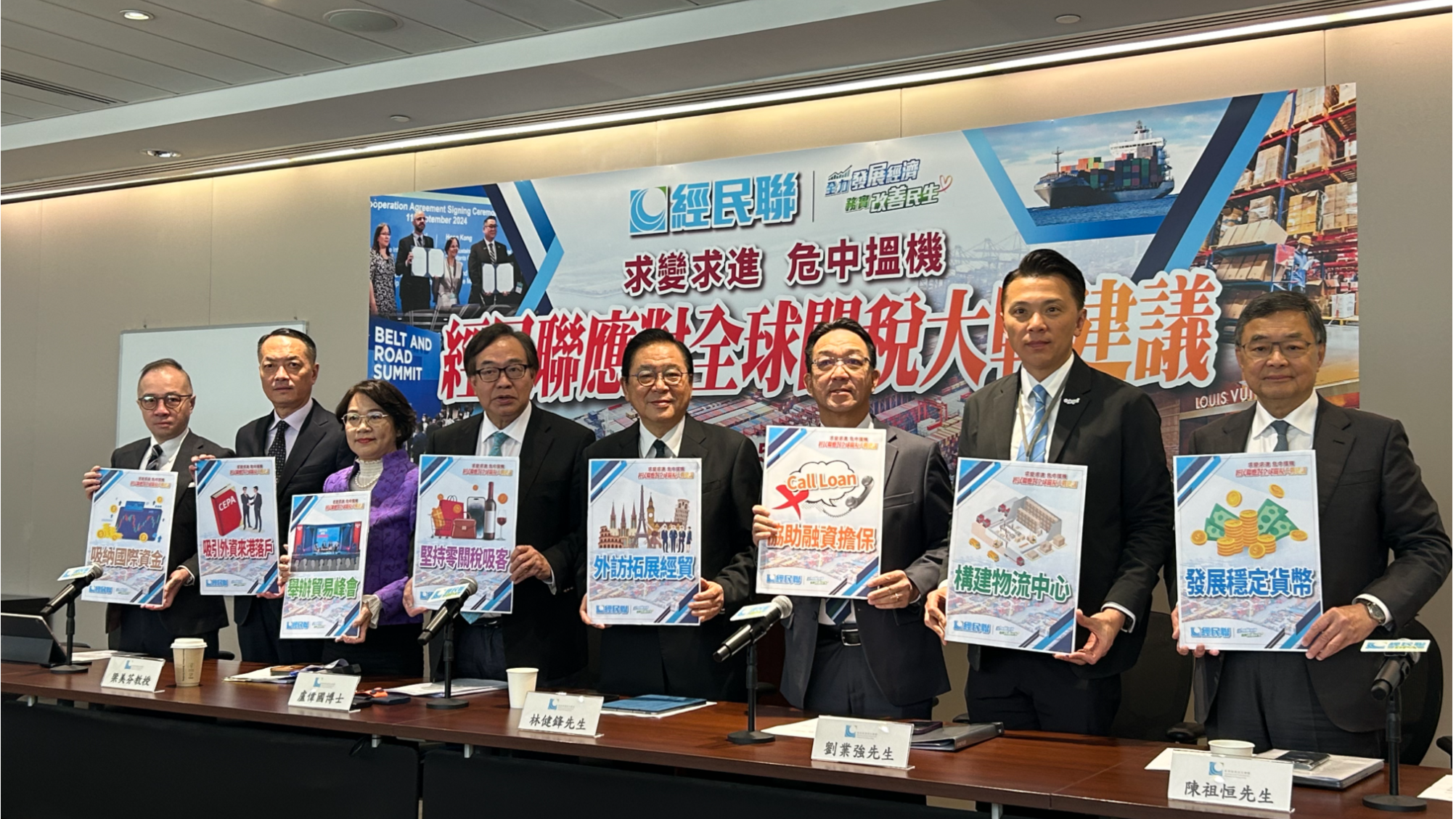
Hong Kong’s business sector called on the Special Administrative Region government on Wednesday to bolster financing and export assistance for local firms, particularly small and medium-sized enterprises (SME), with the aim of stabilizing business confidence amid mounting pressure from US tariffs.
The Business and Professionals Alliance for Hong Kong (BPA) proposed a suite of suggestions to help businesses secure bank financing and maintain cash flow.
It recommended banks implement flexible approaches, such as offering grace periods for SMEs struggling to meet repayment deadlines due to tariff impacts, and introducing special loan programs dedicated to supporting affected businesses in exploring new markets.
READ MORE: Tariffs make US an isolated trade island
The pro-business party suggested extending the principal moratorium arrangement under the SME Financing Guarantee Scheme, which is set to expire in November, by another 12 months.
The BPA also called for a simplification of the loan application process and required documentation to ease the burden on SMEs and accelerate their access to funding.
Moreover, the alliance said the Hong Kong SAR government should consider reintroducing the “100% Credit Limit Top-Up Scheme”, a short-term program launched in 2020 to bolster support for exporters and mitigate credit risks during the COVID-19 pandemic.
Jeffrey Lam Kin-fung, a vice-chairman of the BPA, said the sound and sustainable development of SMEs, which account for about 98 percent of businesses in Hong Kong, is crucial for the city’s economic recovery.
These enhanced recommendations follow recent announcements by the SAR government to assist businesses facing tariff-related challenges. Last week, the Hong Kong Monetary Authority (HKMA), in collaboration with the banking sector, unveiled measures such as extending repayment periods for trade loans and allowing installment payments. The Hong Kong Export Credit Insurance Corporation has also extended free pre-shipment coverage and reduced premiums for exports to emerging markets.
Lam said he believes these measures would help mitigate the impact of tariffs on local enterprises and stabilize business confidence in Hong Kong.
BPA Chairman Lo Wai-kwok said it is important for Hong Kong to “identify opportunities within the challenges”. He noted, “Despite the imposition of high tariffs, Hong Kong’s steadfast commitment to free trade has received wide acclaim from the international community.”
In addition to supporting local enterprises, the BPA emphasized the importance of maintaining Hong Kong’s status as an open and free port.
Priscilla Leung Mei-fun, a vice-chairman of the BPA, said Hong Kong should work harder to strengthen its position as a free and open port — thereby ensuring the smooth flow of goods, capital, and information — as US tariffs threaten international free trade. By leveraging this advantage, Hong Kong has the potential to attract more investments from both the mainland and abroad, she said.
To attract foreign capital, the BPA recommended that the authorities enhance investment promotion agencies, proactively reach out to industry leaders and high-potential companies, and offer incentives for businesses relocating to Hong Kong.
READ MORE: US tariff hike on small orders to harm trade
The SAR government should encourage foreign firms to capitalize on the economic and trade policies that exist between Hong Kong and the Chinese mainland and to tap into opportunities in the vast mainland market, Leung said.
Contact the writer at irisli@chinadailyhk.com


